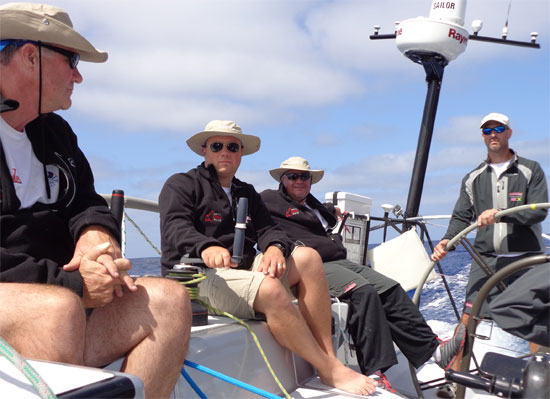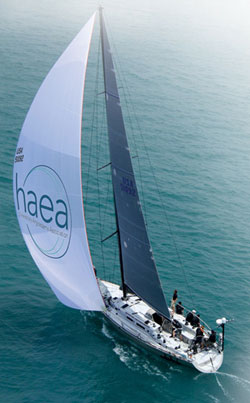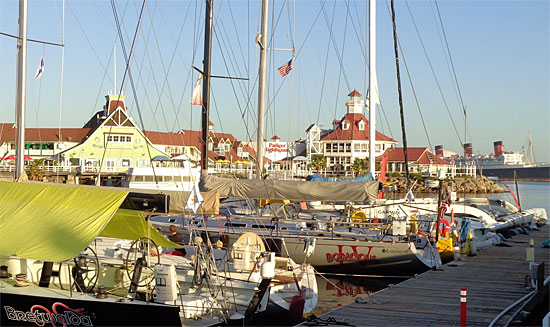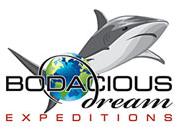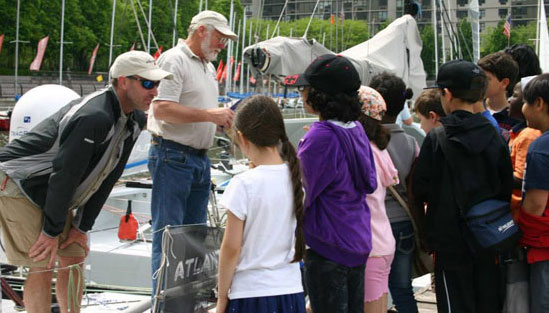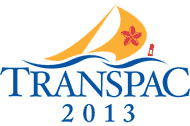When last we spoke, Bodacious IV was 100 miles from the finish of the Tranpac, proceeding along the north coast of Maui and through the Hawaiian Islands towards Oahu. Sailing along at 10 to 12 knots, after so many days, turns things a little less exciting and more mundane as the miles pass and your senses become accustomed to the speed – that is, until nature decides to throw something unexpected in your path.
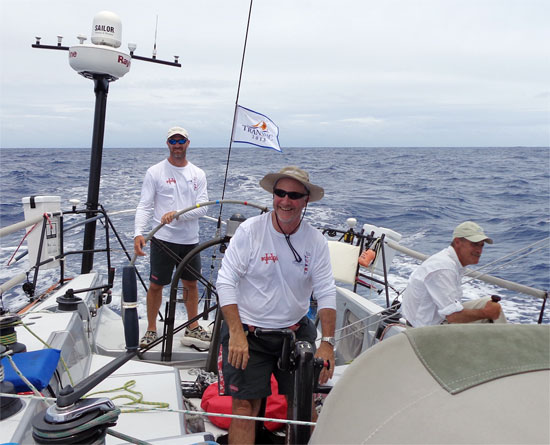
Matt, Tim and Jim … in the islands … on our last day at sea.
So it was during our last 100 miles. Just after Midnight (Hawaii Time) – we were caught by a stalking “squall” which zapped us with a 30 degree change in wind direction and kicked the wind speeds from 16 to 25 knots, while at the same time managing to spit a few buckets of rain on us – which threw our groggy crew into “sail or fail” mode! Fast action by Matt Scharl at the helm and by all hands, none of whom were able to sleep through the excitement, kept the boat on her feet and scooting on through the Molokai Channel on the course for Oahu, and Honolulu.
During those squally conditions, we sailed 17 miles in 80 minutes … and that was “as the crow flies.” So, actually it was probably more like 20 miles in 80 minutes if you figure in the gybes, which add in extra zig-zag miles. That’s some good fun sailing to say the least, but it also takes a pretty strong and alert crew to take full advantage of all that extra wind speed. As the squall moved on, once more indifferent to us, we settled into a more relaxed sail to the finish. The Molokai Channel, for us post-squall, didn’t quite live up to its reputation for accelerated winds and large surfing seas.
Once across the 25-mile wide channel, we sailed down the coast of Oahu, much of it glittering with the lights of civilization. These shimmering strands provided an interesting perspective from the sea — the lights of the streets and buildings coursing along the veins of the ancient lava flows of the island’s origination, highlighting the major formations as if they were solidified lava flows.
As we cleared Makapu’u Point still in the middle of the night, light from the bright full moon silhouetted majestic Diamond Head, causing us to focus our final moments of racing on the red flashing light that signaled the finish line of the 2250 mile long Transpac Race. Moments after crossing the indicated finish line, our finish was officially confirmed by the race committee – the first boat in our Division (#6) to the finish!
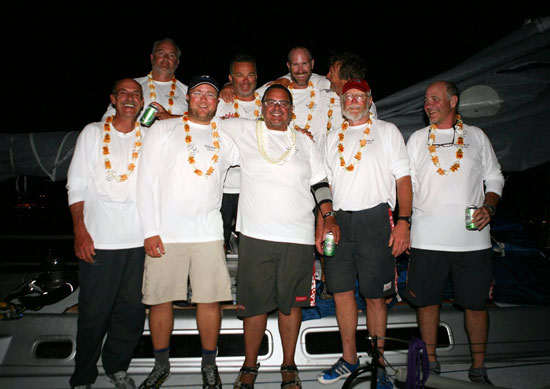
The Crew of Bodacious IV at the Finish (Photo courtesy of the Transpac)
Even at the hour of 5AM, a rousing reception awaited us at the docks of the Hawaii Yacht Club, as we rolled into harbor and into the traditional and festive welcoming party for finishing boats. This made our arrival in the early, pre-dawn light such a delight for the brined and blurry gang of Bo IV. Leis were placed on all crewmembers and even one on the bow of our beloved Bodacious IV as well. Obviously, this tradition also serves as a ploy to displace the seasoned smell of 9 men after 11 days of sailing in the confines of small boat crossing the huge Pacific Ocean!
Now as far as the actual scoring for the race goes, the way the Transpac works (and other races too) is that boats – even boats of similar length and design, have certain distinctions between them in terms of mast height, keel configuration, etc. and so a handicapping method is used so that once the boats finish, times are corrected to account for those handicaps and from that, final positions are determined. So it is, that while we were the first through the “barn door,” our final placement in our division was third behind Horizon and Medusa.
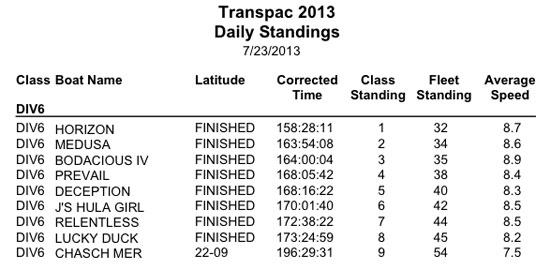
Division 6 “Corrected” Standings
So, after some thick as concrete slumber, it’s time to clean up Bodacious IV; wash the salt from the equipment, dry out the sails, pack away the equipment and prepare her for a reception in honor our friends at HAEA (the US Hereditary Angioedema Association).
As I expect you all know by now, we’ve been sailing this race to bring awareness to this devastating disease. I’ve learned a lot about it in the process, and as I hear more about the effects that attend to someone missing vital blood protein and how quickly it can take away the very breath of life, I am honored to share a part of my lucky life to help bring some awareness to the goals of the HAEA. In fact, this afternoon, we will be sporting our HAEA insignias and hosting them all for a party at the Hawaii Yacht Club.
I’ll also do my best to get you updates on the various celebrations going on here this week in Hawaii. Least you think that it’s all party time now, Captain Tim Eades and I will be spending the next week or so disassembling Bodacious IV, and packing her up for ocean shipment back to the US mainland and then across land to Newport, RI where she will await her next races. Hawaii though … not a bad place to have to work on a boat!
Until later … many thanks to all of you for your support!
– The most grateful crew of Bodacious IV
Skipper Jeff Urbina, Capt. Tim Eades, John Hoskins, Matt Scharl, Jim McLaren, Chris Pike, Christer Still, John Ayres and Dave Rearick.


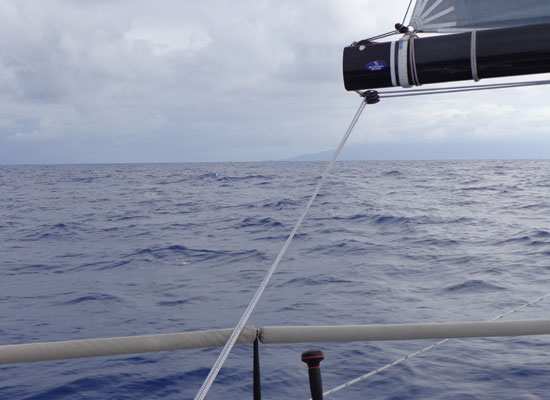
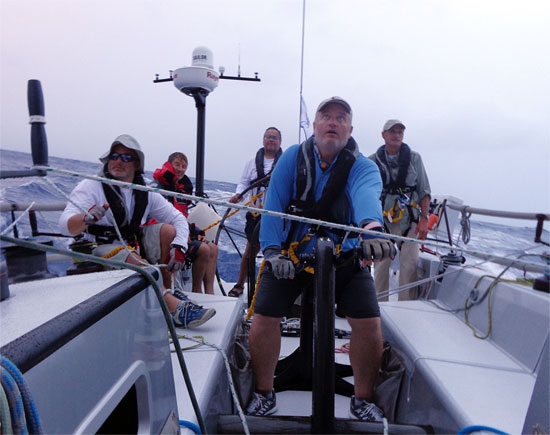
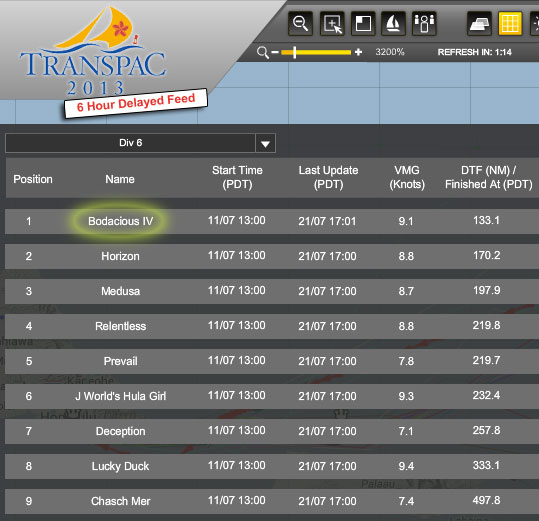
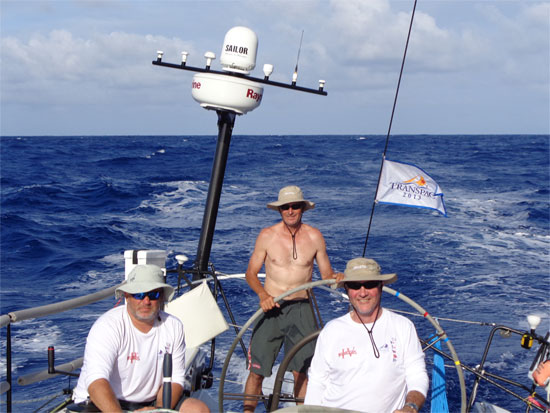
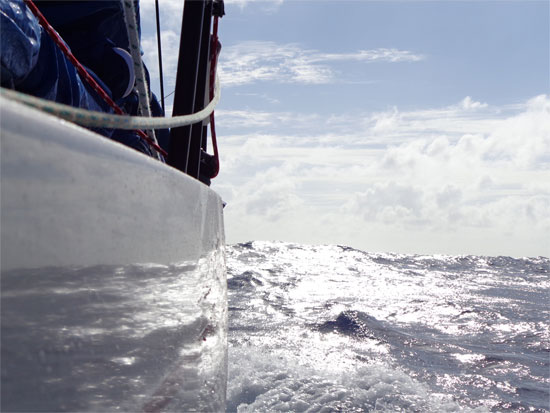
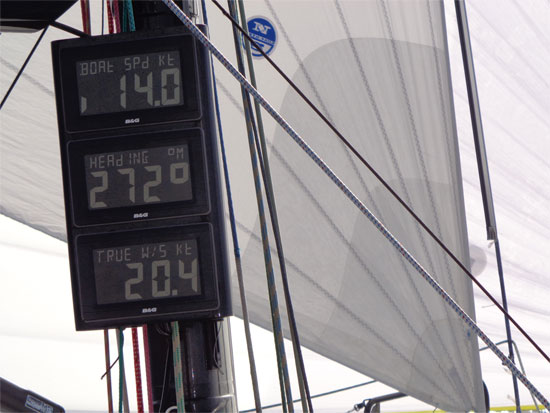
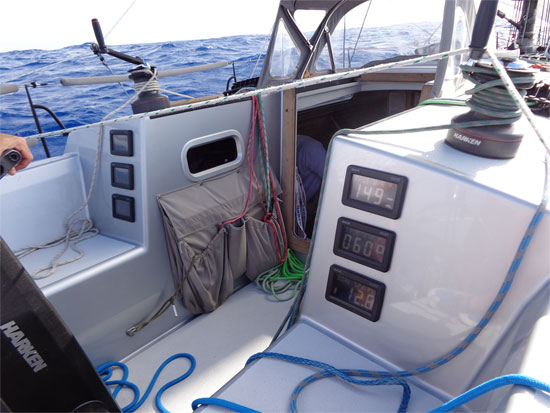
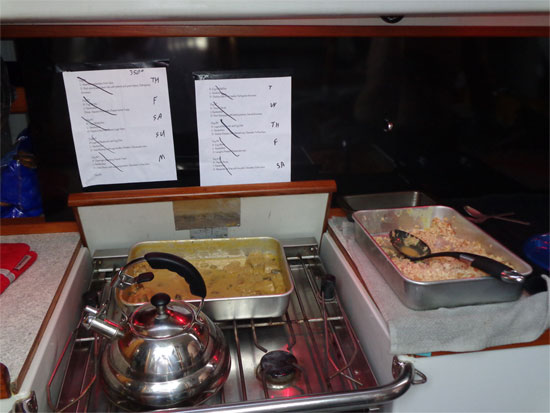
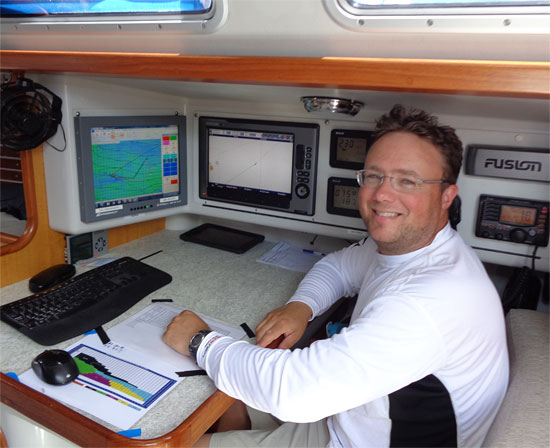
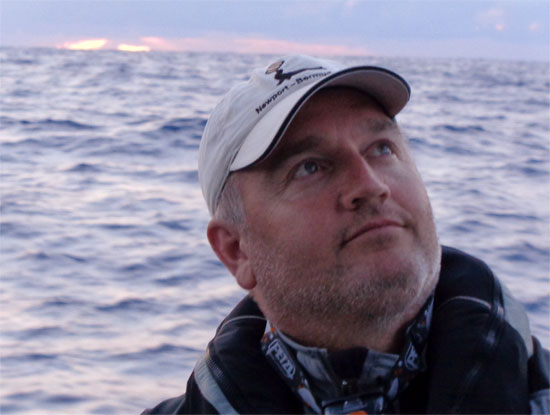
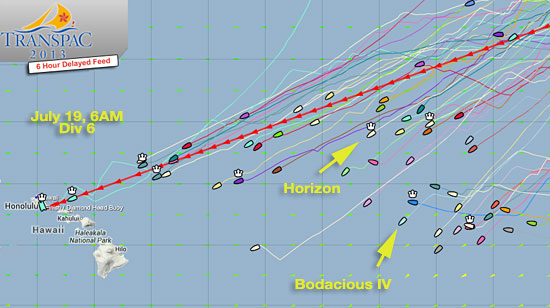
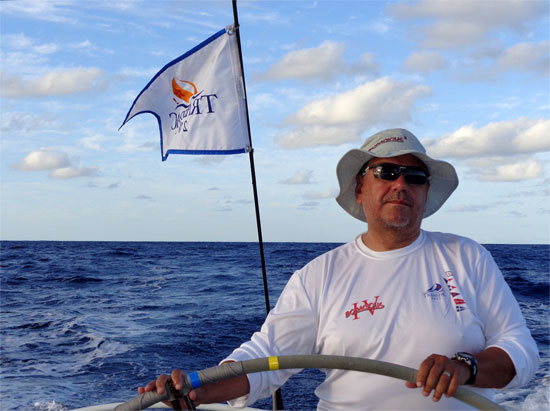
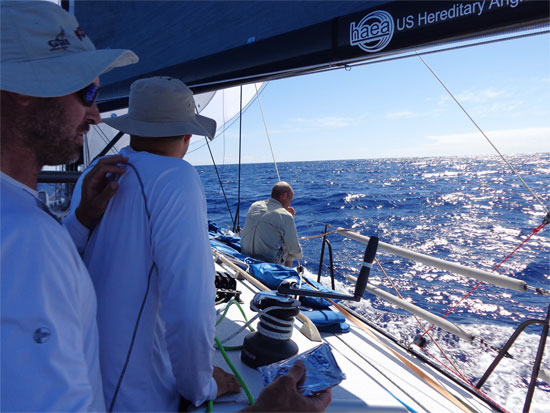
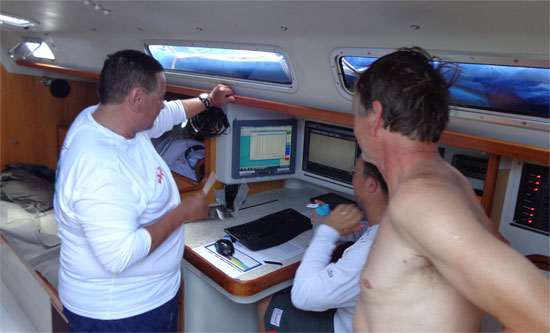
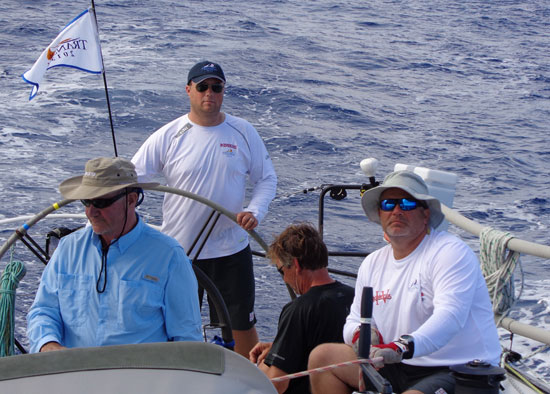
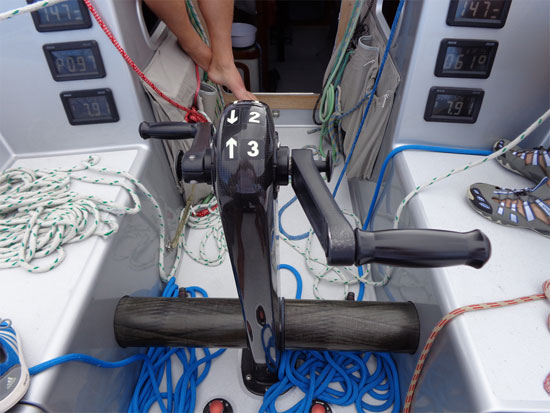
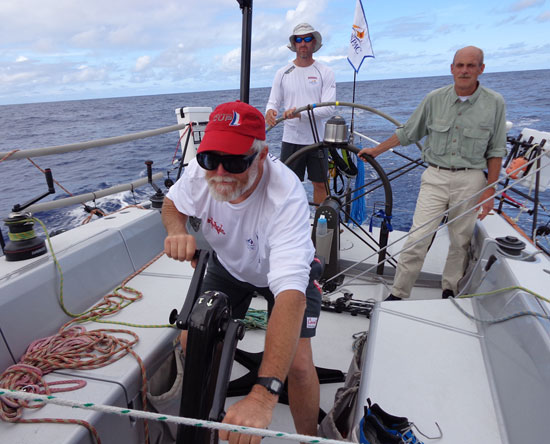
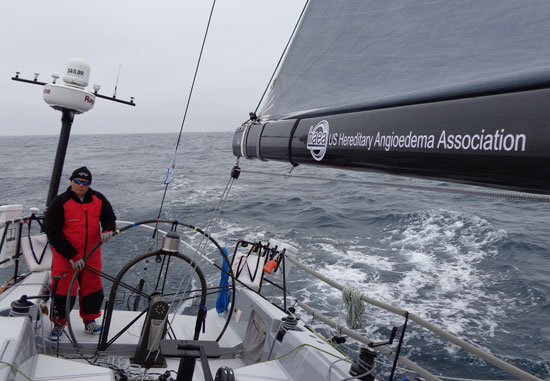
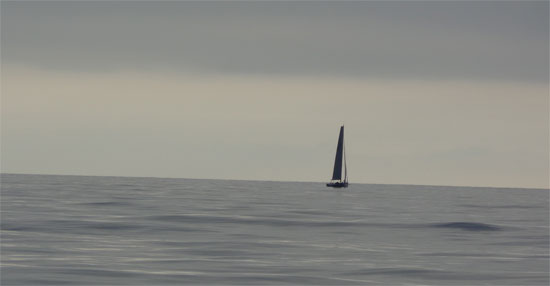
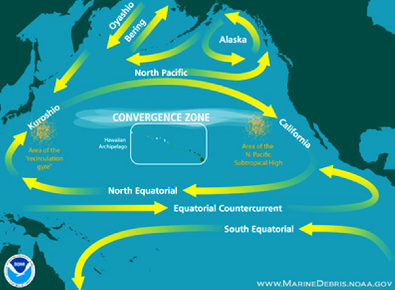
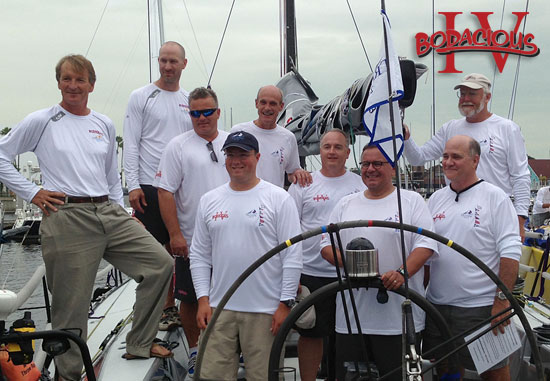
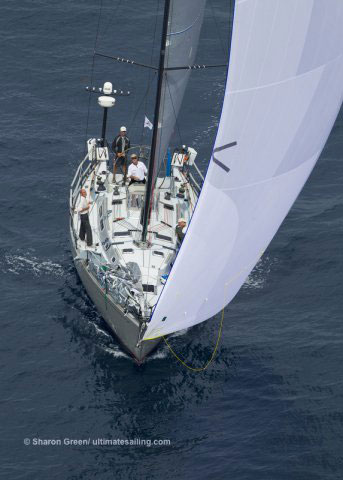 Sunday arrived like a gift. We set our spinnakers and went to working our way down the trade wind route to Hawaii, sailing between 14 and 20 knots … in winds coming from our starboard (right) quarter (back corner of the boat) direction. This was giving us steady speeds with a peak speed so far of 17.2 knots!
Sunday arrived like a gift. We set our spinnakers and went to working our way down the trade wind route to Hawaii, sailing between 14 and 20 knots … in winds coming from our starboard (right) quarter (back corner of the boat) direction. This was giving us steady speeds with a peak speed so far of 17.2 knots!